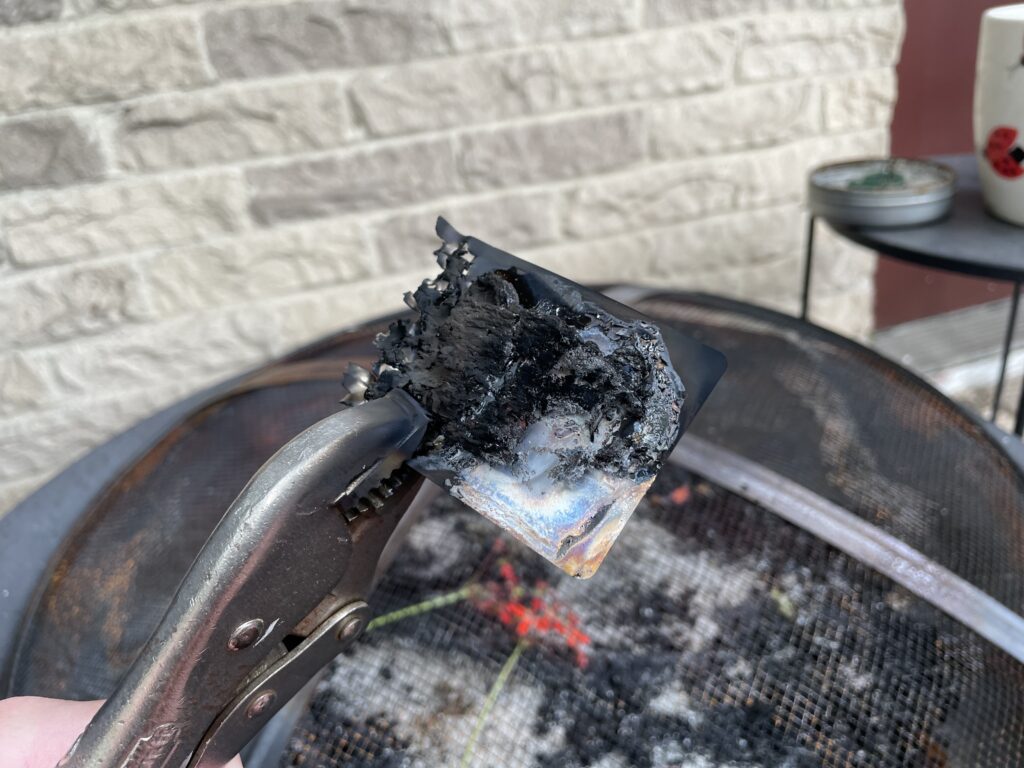It would seem that I neglected to highlight last year’s biggest tomato, but here’s the one from 2021:
This year’s was bigger.

That is all.
–Simon

Tales from Easement Acres
It would seem that I neglected to highlight last year’s biggest tomato, but here’s the one from 2021:
This year’s was bigger.

That is all.
–Simon
I have accepted a new position at work:
AVP, Authentication Solutions
As with most long-term jobs, the Product Owner stint has long since lost its romance.
That is not to say it was a bad job. But there’s only so much one can learn, and I was feeling the growing loss of interest. It was time.
I’m still with the same company, but I’m moving out of Marketing. I’ll be under Credit, working cross-functionally to integrate authentication software. It ties into Fraud-a new business segment for me. Sounds like a good CV addition.
And the large pay increase certainly sweetens the deal.
–Simon
More smoked meat pics inbound. This time a brisket!
It follows, more or less, the same procedure as pork shoulder.
The main difference being the intramuscular fat content. I don’t think there was much advantage to wrapping it in foil for the collagen liquefaction stage. It didn’t give me a system purge, but was definitely too rich. I also don’t think it would have dried out, and needed that extra rending. And I left out all seasoning, save the initial brine, so as not to overwhelm the smoky taste (which I wouldn’t do for pork as it needs the added moisture and flavor).
So here we are:

Wood chips courtesy of the kid’s gift to me: Jack Daniels whisky barrel wood.
–Simon
Who doesn’t love a home-grown tomato? Well, I’ve met people who don’t, but I personally think they’re not people but rather some type of The Omen devil-spawn, and no one can change my mind. I am fully prepared to debate this.
So to increase my production of delicious produce and repel demons at the same time, I planted a second row of determinate tomatoes this year, bringing the total to 18, and to compliment the 12 indeterminate tomatoes on the trellis, and the volunteers that pop up throughout the gardens, and the two extra I put in a pot on the deck. I really like tomatoes.
So standby for a selection of seductive solanums! (AKA, tomato porn):



On a more informational note, this was the first time I tried broiling the tomatoes for sauce. The standard blanching/skinning/de-seeding applies, but the flesh is then slightly browned before being added to the pot. I also included a full mirepoix this time too.


I think the broiling somehow also brightened the red color, as my sauces are usually more muted, so bonus. I’ll definitely be taking this approach again.

And I won’t have to wait long. In one week’s time, the bowl has filled again. Pizza sauce next!
–Simon
I reached into my pants and pulled it out. Gripping it firmly, I held it out to the her. She wanted it.
Then she motioned to the contactless tap to pay terminal in front of her. I obliged, bringing my Amazon Prime credit card into RFID range, completing my transaction at Whole Foods and earning 5% back.
It was the first new credit card I had applied to in years, solely on the grounds of the Amazon and Whole Foods rewards rate. It was enough, I had decided, to offset my harsh judgment of private labels, as was the Lowe’s credit card. Unlike the Lowe’s card, however, the Amazon card is a cool steel-grey black and laminated metal. It seemed odd, considering the modern switch to pay methods that induce less physical stress on the material, or no need at all for the physical card itself, for a bank to choose a more durable construction.
The industry shift of course was a direct result of the first metal card, the Amex Centurian card–that invite-only heavy black metal card with no spending limit; mentioned in rap songs and business executive stories involving consort services and cocaine. I admit that I haven’t tried to buy either with my Amazon card, but I’m just not feeling like a badass when I drop down my own heavy metal card.
I was outdone from the start anyway. At a family gathering, my sister-in-law produced her expired Venture card, equally as amused at its metallic nature. But it seems there’s no standard, as her card was significantly heavier. She lamented on how she was to dispose of it – a conundrum I hadn’t yet considered, as my own card was still valid. Up for the challenge, and confident in my beefy commercial-grade shredder at home, I offered to dispose of it for her.
The machine kicked to life and gave it a solid effort, then jammed. I had to employ vice grips and a prybar to, thankfully, save my shredder.

My next attempt what somewhat less graceful: a propane torch.

That worked, but couldn’t have been very good for me to inhale burning plastic fumes. I suppose I could have used my metal shears, but that strikes me as a little too much effort to forever scatter the printed numbers. So I checked some bank websites for official instructions, and they say to mail the card back to them. That’s even sillier than making a metal card in the first place.
I’m open to other suggestions, but all the disposal methods I can think of involve more work than a shredder. I guess that’s the price we have to pay for trying to feel like millionaires.
–Simon